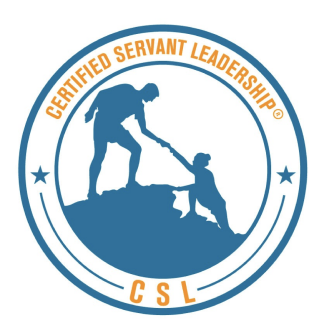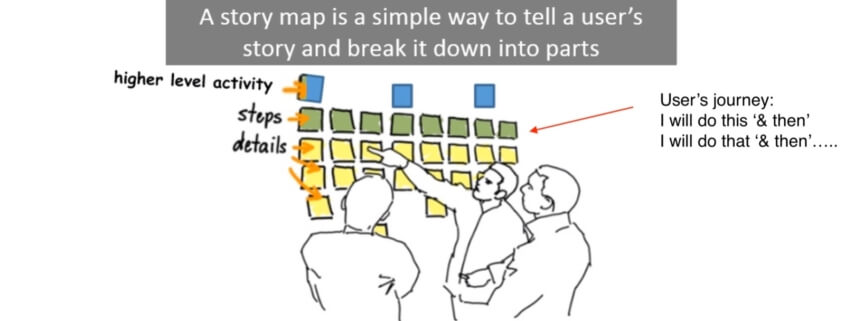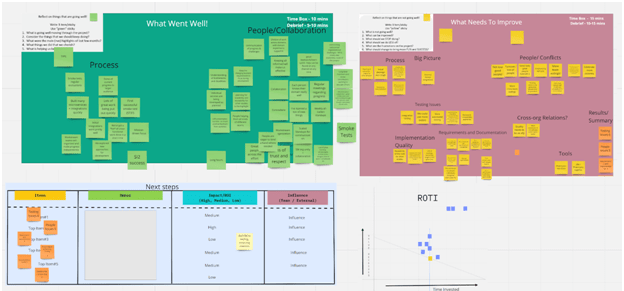
We all know that the Scrum Team consists of the three main roles – Scrum Master, Product Owner and Developers (erstwhile Development Team)
Where do Managers fit in then?

Many think that Managers do not have a role in Agile and Scrum. Some even say that Managers are not necessary and teams can survive and even thrive without them
Well, Agile being “agile”, is all inclusive and so Managers can live and actually help Agile grow and thrive in a number of ways
Let us explore all different roles and places where Managers can fit in and how they can positively impact their Agile and Scrum teams and what do they need to avoid that would weaken agility in their environment and organization

Manager and Scrum Team: The Manager role has been in place long before Agile and Scrum came into being. Managers were responsible for taking care of people, what they work on, how they accomplish the work and would help with tracking the work
However, Agile encourages self organizing teams. Per the Agile manifesto:
The best architecture, requirements and design come from self organizing teams (Principle#11),
and
Build projects around motivated individuals. Provide them with the environment and support they need and trust them to get the job done (Principle#5)
Furthermore, the Scrum roles and responsibilities outline the Scrum Master as one who owns the process, team effectiveness and team happiness. This includes conflict resolution, making sure the impediments are resolved in a timely manner, mentoring, guiding, coaching, facilitating, …
You may benefit from reviewing related blogs. What Does A Scrum Master Do? | Agilonomics and An Ideal Career Path for a Scrum Master | Agilonomics for in-depth understanding of the Scrum Master role
Scrum Product Owner is the one who understands the market, the users and customers, brings in the requirements and prioritizes them. He/she creates the vision for the product and aligns it with the team and stakeholders. He/she works with the team to groom the backlog, is available to clarify requirements and accept the “done” work throughout the Sprint
The Scrum Master coaches the developers and the Product Owner to work effectively keeping in mind the tenants of Agile, focused on value delivery and team effectiveness
What is the role of a Manager in this setup then? And, where and how does a Manager fit in this whole picture?
Well, there are a number of ways Managers show up with Agile teams. I discuss a number of scenarios I have come across with examples and suggestions that can make the role effective

Manager as the team boss: Developers report to the Manager and Scrum Master is an independent role with reporting lines in another department (example – PMO)
Manager’s micro-managing the team can conflict with the Scrum Master role and create an impediment to Scrum effectiveness. If Scrum Master wants to experiment with the process or coach the team for following Agile Principles but the Manager opposes it, it will weaken the SM role and team effectiveness can suffer
It is important that the Manager, Scrum Master and Scrum Master’s boss have a working agreement so that the Scrum Master feels empowered and the role is supported
In the case the Scrum Master role is played by one of the developers then the Scrum effectiveness can be weakened further as there is no one for the Scrum Master to intervene if needed. Such Scrum teams work towards only perfecting “doing” Agile

Manager as the Product Owner: This is common in many companies where Manager transitions to the PO role since she has been working with the same team managing the what, how and tracking prior to transitioning to Agile
Scrum Master belonging to an outside-the-team department such as PMO may find it hard to coach the Manager in Agile ways. Example: Manager failing to agree-upon/cooperate on how to address change and repeatedly brings scope (creeping) in the middle of Sprints and justifying her being the PO, can call the shots on scope. Such reasoning can hamper with correct and effective agility
Here, too, having a working agreement with the Manager and PMO can help empower the Scrum Master
Again, If the Scrum Master happens to be a developer, then coaching one’s own Manager-cum-PO can be even harder and challenging

Manager as the Scrum Master: This is a tough one. There is a conflict of interest in the two roles. A servant leader Scrum Master coaches the team, adheres to the Agile values and principles but experiments with the process to see what works best for his team. He is open to the team challenging his assumptions and disagreeing and in fact uses such disagreements to foster powerful conversations and bond the team
However, when this role is played by the team Manager, it is difficult for developers to oppose or challenge the choices the Manager makes. The subtle thought, “my performance review will be impacted if I oppose my Manager”, is always in the back of the mind of the developers
Best is to avoid this anti pattern in the roles because however hard you may try, you will find it will never achieve the right balance between the two conflicting roles

Manager as both the Scrum Master and the Product Owner: This is a double tough one. One for the reasons mentioned above and second for the two conflicting roles being played by the same person
Scrum Master role is to protect the team from being overly and unreasonably pushed by the PO and stakeholders while the PO role is to push and drive the team to achieve business goals. A delicate tension between the two roles is healthy for effective Scrum
Remember, when the same person plays both the Scrum Master and Product Owner roles, it is like being a 2 headed dragon. At any time, one head will end up eating the other. In other words, you cannot be a good Scrum Master and a good Product Owner at the same time!
How can a Manager effectively support Agile?
Whichever orientation a Manager is in, she can choose to be an Agile champion and show behaviors that align with Agile values and principles
Examples:
A Manager cum Scrum Master can help build confidence amongst the developders by repeatedly showing behaviors that support challenging her assumptions when process improvements are not working out or they feel some choices will compromise Agile values
I remember, a developer was recognized for respectfully challenging his Manager cum Scrum Master who would do Daily Scrum twice a week to save time. The developer cited lack of daily sync ups as the major reason for the team not finishing the committed work every Sprint
Such actions encourage open conversations and support agility
Another Manager who played the Product Owner role would work closely with the developer cum Scrum Master closely and would not speak during standups unless he had critical release questions regarding the stories under discussion or if the developers had questions for him to clarify a requirement
He would never interfere with the Scrum Master work and any disagreements would only be taken into a 1:1 meeting
I’ve also had the pleasure of working and coaching a Scrum Team where the team Manager played both the Scrum Master and Product Owner roles, worked closely with and involved the developers in making critical decisions
While exceptions do exist, smooth implementations are rare and despite all good intentions, there will be situations where conflicting interests can influence the effectiveness of roles
What has been your experience with Managers playing one or both of the Scrum Master and/or Product Owner roles in your Agile implementation?































